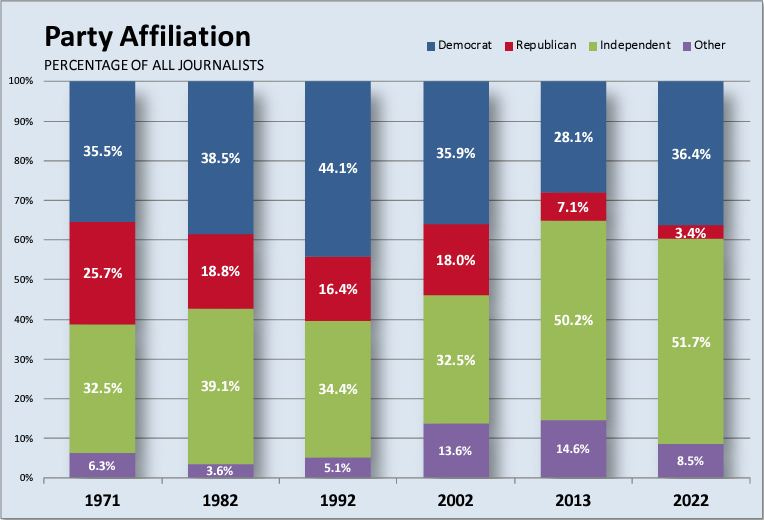The History Chap
Published 9 Nov 2023What is the Kohima Epitaph and what has it got to do with Britain’s forgotten battle that changed the Second World War? Well, those of you living in the UK and who attend Remembrance Sunday services will probably know the words even if you don’t know the story behind them:
“When you go home, tell them of us and say,
For your tomorrow, We gave our today.”The memorial which bears those powerful words, stands in a cemetery containing the graves over over 1,400 British servicemen and memorials to over 900 Indian troops who died alongside them. They died in one of the bloodiest, toughest, grimmest battles of the Second World War. A battle sometimes called the “Stalingrad of the East.”
Outnumbered 6:1 and half of whom were from non-combat units, the multi-national British garrison stood their ground in bloody hand-to-hand fighting, refusing to retreat or surrender for two weeks until relieved. And even then the battle continued for another vicious month. That stand stopped the Japanese invasion of India in its tracks and turned the tide of the war in South East Asia. Both for its ferocity and its turning point in the war, it has been called: “Britain’s greatest battle”.
The Japanese lost 53,000 men from their army of 85,000.
The British (14th Army) lost 4,000 men killed and wounded.This forgotten victory was made possible by General William (Bill) Slim commanding the 14th Army. Rather like the battle and the 14th Army, General Slim has not received the recognition that he is due. And yet, it is almost completely forgotten. Rather like the army that fought against the Japanese in Burma.
So, as we near Remembrance Sunday, I think it is time to reveal the story of the Battle of Kohima in 1944.
(more…)
February 1, 2024
The Kohima Epitaph: Britain’s Forgotten Battle That Changed WW2
QotD: English hypocrisy, spoken
Sir Guthrie is a hybrid, a scientist-turned-apparatchik. “I’m sorry to be a nuisance,” he says, in that suave, hypocritical English way, which is at once admirable and disagreeable. This manner of speaking, of never saying quite what you mean, was illustrated in a French book of the time, La Vie anglaise, which tried to explain English manners to the French. When an Englishman says, “We must meet again,” the author explains, he means: “I hope never to see you again”; and when he says, “I know a little about”, he means: “I am an expert in”, or possibly even “the world-expert in”.
Alas, this indirect way of speaking, always tinged with irony and humour, has almost disappeared in favour of a cruder and less amusing manner of communicating. Literal-mindedness has replaced subtle codification, and with it, a people who were once subtle, if sometimes perfidious, have become crass and often aggressive. Irony, which the whole population once both understood and employed, and was so strong an aspect of the national character, has now disappeared, replaced by a disposition to querulousness and indignation.
Theodore Dalrymple, “What Seventy Years Have Wrought”, New English Review, 2019-10-26.
January 31, 2024
The ghost of Beeching haunts model railways?
In The Critic, Richard Bratby notes the solemn departure of the very last model railway train in Britain, at least based on recent reporting on the hobby:

“Platelayers hut and coal train” by Phil_Parker is licensed under CC BY 2.0 .
The last model train has departed, and in the attics and spare bedrooms of Britain, closure notices the size of thumbnails are being glued to cardboard stations. OO gauge track is being torn up; weeds made from lichen and flock shoot up where once there were busy miniature main lines. It’s Beeching all over again, just tiny. And in a desolate parade, once-cherished model locos trundle off to 4mm scale scrapyards, to stand lifeless and forgotten until, like their real-life forebears, they are broken up to be recycled as … oh, I don’t know. iPhones. Xboxes. Something modern, anyway. Something cool.
Well, I read it in the Telegraph, so it must be true. “Death of the Model Railway” proclaimed the headline last weekend, and the same story duly popped up all over the media, usually with some variant of “running out of steam”, or “going off the rails”. I was a bit late coming to the news because it was Saturday and I’d spent the afternoon building a model goods wagon from a plywood kit. I’d just added the lettering, and it came as a jolt to learn that the hobby no longer existed. Gingerly, I poked at the varnish I’d just applied — damn, still sticky, and now there was a socking great out-of-scale thumbprint spoiling the look of the thing. That seemed real enough.
But why did those headlines seem so familiar — and ring so false? True, 2024 has begun badly in the railway modelling world. Last week the organisers of the annual Warley National Model Railway Exhibition — a giant show held at the NEC in Birmingham, and a highlight of the hobby’s annual calendar — called it quits. A few days previously, the venerable model railway shop Hattons had announced that it was closing down after 78 years. Taken together, you can see why a journo from outside this particular subculture might link unrelated events into a bigger, juicier story. And let’s face it, a dig at railway enthusiasts is always good for a laugh, isn’t it?
I won’t deny that both events stung me. As a kid in the 80s I used to visit Hattons at its original Liverpool location. Even then, it felt old-school: a gloomy, musty terraced shop, piled to the ceiling with boxes and display cases. But a Saturday visit was like entering Aladdin’s cave and we’d always leave with some new treasure, wrapped in brown paper. Hattons has long since moved to newer, brighter premises and refocused on its mail-order business. I realise with a pang of shame that I’ve never used either.
As for the Warley Exhibition; well, I was there with my dad in November. It’s a regular father and son fixture a few weeks before Christmas, and if we’re honest we probably look forward to it rather more. It was rammed — 80-odd layouts (please, never “train sets”) from the UK, Europe and America, with crowds jostling four deep, and trade stands offering everything from antique clockwork models to the latest digital tech. My 12-year old eyes would have popped out of my head at the quantity and quality of products available. One stall was using airport-stye scanners to produce miniaturised replicas of its customers, so they could ride their model trains in person. If this is a hobby in decline, I’m not seeing it.
I’m going to stick my neck out here: correlation does not imply causation, and railway modelling is actually thriving. What the headlines describe is a collision of two familiar, but separate, 21st century trends the death of the high street, and the decline of old-style social clubs. Hattons never went bust: it read the runes and decided to get out in good order. As for Warley; well, if anything, the Exhibition seems to have been a victim of its own success. Like many leisure pursuits, railway modelling in the 20th century revolved around clubs, with all the paraphernalia of committees and tea rotas. People don’t do that quite so much nowadays.
The LA Times recently laid off a bunch of “activists masquerading as reporters”
Tom Knighton illustrates one of the reasons so many legacy news organizations are being forced to cut back on staff in hopes of staying afloat:
Last week, the LA Times announced a massive layoff of journalists. They were just one of several places that kicked the activists masquerading as reporters to the curb.
This, of course, was met with consternation by the journalistic field as a whole.
Everyone seemed ready to warn of doom and gloom, telling us how important they are to society and that we need them.
Yet absolutely none of them seemed remotely interested in actually examining why the field is shrinking so horrifically.
Sure, the current landscape is very different due to technological advancements. For example, there’s places like Substack where I can reach out to readers directly instead of needing to filter things through a newspaper’s editorial voice.
But journalists also did this to themselves.
[…]
Because journalism’s “inherently political” tribe uses their politics to decide which stories are worth reporting. Journalists, if we can even really call them that anymore, aren’t simply sharing truth. They’re amplifying some stories and smothering others.
How often do we see stories claiming so-and-so is a white supremacist because he favors welfare reform or a tougher stance on illegal immigration? How many publications amplified the nonsense about Border Patrol agents “lassoing” illegal immigrants because of a picture they didn’t understand?
Journalism doesn’t represent the American people. It represents the Democratic Party.
In 1971, Republicans accounted for just over a quarter of all journalists. In 2022, they were 3.4 percent.
Original can be found here – https://www.theamericanjournalist.org/
Now, in 1971, those independents were probably divided between left-leaning and right-leaning to some degree or another, though the survey didn’t capture that.
In 2022, I suspect many who called themselves independent did so because they thought the Democrats were too right-leaning for their tastes.
What’s more, despite the lack of ideological diversity, that same source found that only 21.8 percent see that as needing to change.
What’s more, starting in 2016, news publications really stopped even trying to pretend they were unbiased. A form of blatantly activist journalism became common, with virtually every news agency in the nation showing at least some signs of it.
The rise of the “Technical”
Kulak at Anarchonomicon considers the innovation and adaptability that Chad’s ragtag forces displayed in the late 1980s to drive Libyan forces out of their territory, specifically the military use of Toyota pickup trucks as improvised gun carriages:
The Great Toyota War of 1987 was the final phase of the Chadian-Libyan conflict. Gadhafi’s Libyan forces by all rights should have dominated the vast stretches of desert being fought over: the Chadian military was less than a 3rd the size of the Libyan, and the Libyans were vastly better equipped fielding hundreds of tanks and armored personnel carriers, in addition to dozens of aircraft … to counter this the Chadians did something unique … They mounted the odds and ends heavy weapons systems they had in the truck beds of their Toyota pickups, and using the speed and maneuverability of the Toyotas, managed to outperform Libya’s surplus tanks and armored vehicles. By the end of the Chadian assault to retake their northern territory, the Libyans had suffered 7500 casualties to the Chadians 1000, with the Libyan defeat compounded by the loss of 800 armored vehicles, and close to 30 aircraft captured or destroyed.
The maneuverability and speed of the pickups made them incredibly hard to hit, and the tanks in particular struggled to get a sight picture … strafing within a certain range the pickups moved faster across the horizon than the old soviet tanks’ main gun could be hand cranked around to shoot them.
Since then Technology has become the backbone of insurgencies, militias, poorer militaries, and criminal cartels around the world. The ready availability of civilian pickups, with the ability of amateur mechanics to mount almost any weapon system in their truck-bed means that this incredibly simple system is about the most cost-effective and easy way for a small force to make the jump to mounted combat and heavy weapon.
But these weapons are far less asymmetric than motorcycles. The increasing importance of mobility means even the most advanced armies are getting in on the game. The US Army is currently converting a portion of its Humvees to have their rear seat and trunk cut out for a truck bed so that they can run a mobile light artillery out of it:
Popular Mechanics article – https://www.popularmechanics.com/military/weapons/a28288/hawkeye-humvee-mounted-howitzer/
The importance of instant maneuverability far outstretches any advantage armor can give in this application. Since artillery shells are radar-detectable, and, follow a parabolic arc, their origin point is easily calculable. Thus shoot and Scoot tactics are necessary since it may only be a minute or two from firing a volley that counter artillery fire might be inbound.
Aside from The bemused jokes that the US is finally catching up with the tech Chad had in the 80s, The truth is most advanced forces have always had something light with a heavy gun that can travel at highway speeds … the fact the US is now converting Humvees to have full light artillery pieces is only really a continuation of the trend of semi-auto grenade launchers, TOW missiles, or anti-tank guns being placed on light fast vehicles since WW2.
The remarkable thing about the technical isn’t that they’re some unique capability militaries can’t use … most poorer countries field something equivalent (the Libyans seemed to have screwed up the unit composition of their force) … Rather the unique advantage is how easy and cheap they are for non-conventional or poorer forces to home assemble.
US combat-ready Humvees cost the military into the hundreds of thousands of dollars, a cost that is presumably even higher as they’re modified to carry heavy weapons systems.
As ridiculous as a Toyota with an Air-to-Ground rocket pod, or a repurposed anti-air gun might be, they’re cheap. The pickup truck new is $20,000-50,000, though I suspect any irregular force would pay closer to 1000-5,000 for something decades old, if they pay at all. Likewise, they’re trivial to source, which is good if sanctions or anti-money laundering laws are trying to stop you from buying anything, and as the Chadians proved: pretty much any captured or surplus heavy weapon will go on it.
This gets irregular forces into the mounted combat game … but it does slightly more than that. Pickup trucks, as any perturbed Prius driver will tell you, are shockingly common … perhaps one in 10 or more vehicles out there are some form of pickup truck. This not only makes them easy to source, but it disguises them and allows them to operate hidden amongst the rolling stock of civilian vehicles, requiring either visual identification or extensive intelligence work to tell them from mere civilians.
This combination of mobility, resemblance to civilian vehicles, and ability to deploy heavy weapons was used to devastating effect by the Islamic State during the 2014 Fall of Mosul. Striking quickly while Iraqi national tanks were deployed elsewhere the small Islamic force entered the city at 2:30 am, striking in small convoys that overwhelmed checkpoints with their firepower, executing and torturing captured Iraqi soldiers and targeted enemies as they went. Even after taking into account desertions and “ghost soldiers” (fake soldiers meant to pad unit numbers so corrupt officials could collect their pay) which significantly reduced the 30,000 Iraqi army and 30,000 police within the city … Even after allowing for all that, the Iraqi national forces still outnumbered the 800-1500 ISIS fighters at a rate of 15 to 1.
YET ISIS was able to achieve a total victory and take the whole of the city within 6 days.
2 years later it would take the Iraqi government with American backing 9 months to retake it.
How? How does a force of 1500 at most, most without any formal training, overwhelm and defeat a force of 12,000-23,000, which at least has some training, better equipment, and has an entire state behind it? How did ISIS do this entirely without air support? Even as the Iraqi government bombed them from helicopters?
How did they take in 6 days what would take the Iraqi government with full American backing 9 months to retake?
Well, they made the Iraqis break and run.
Don’t RUIN your workbench with 2x4s (use these tips instead)
Rex Krueger
Published 8 Nov 2023
(more…)
QotD: The inner-most “zones” outside a typical pre-modern city
Diagram of von Thünen’s model from The Isolated State, after Morley (1996), 62. The agriculture ring is subdivided by intensity (intensive, long-lay and three-field), but here I have merged them for simplicity. The agriculture zone is wider because it did, in fact, tend to cover a larger area. The fade in the pastoralism zone is meant to indicate shifts from ranching to transhumance.
We’ll start at the inside, right next to the city and move outward. Imagine each “zone” as a wider concentric circle, moving outward from the city (see the image to the right). Because transportation costs (especially overland) are so high, distance from the city plays a dominant role in how the land is used and thus consequently what the countryside around the city looks like. As you move further and further away, transportation costs interact with the structure of agriculture to make different activities make more sense, creating somewhat predictable patterns.
Land very close to the city is valuable because its produce can reach the market with much lower transportation costs (and pretty much always in a single day’s walk). As a result, if the land can support any kind of productive use, it will not be left empty. Instead, the land is going to be put to the most productive use possible. Improvements that – because of cost or labor – might not be attempted on less valuable land further out will likely be done in close proximity to the city. Stepping out of our ideal model for a moment: this is especially true of irrigation, since cities tend to be on waterways (especially rivers) anyway, making irrigation both more valuable due to low transport costs and easier to accomplish.
Thus land in this innermost zone is likely to be heavily improved (irrigation, terracing to get maximum space out of hills, etc). Labor use will also be intensive, both because it is readily available (you are right next to the major population center) and because labor costs are small compared to the high value of the land. If you have managed to get some farmland right outside the city gates, it is very much worth your time to hire whatever labor you need to get the most out of it, so as to recoup the cost of buying or holding such valuable land.
The other improvement one is likely to do in this zone, at least for growing crops, is make extensive use of fertilizer, which in this case generally means manure. The good news is that this zone is directly next to the city, with its intense concentration of animals and people producing manure, making manure cheaper (yes, people did pay for it). Extensive use of manure lets the fields stay under cultivation more often – being fallowed less frequently. At greater distance, the cost of the manure for this begins to outweigh the value of the extra crops, but so close to the city, land this valuable ought to be kept producing as much as possible.
So what kinds of land use does this lead to? The two key activities that von Thünen identifies are horticulture and dairying, to which I’ll add trough-fed animals like pigs (not quite dairy, but as we’ll see, similar from an economic perspective). Why? Horticulture – the intensive growing of fruits and vegetables, often in small “market gardens” – is labor intensive and offers a high economic yield for the space. Land used for horticulture can be kept under almost continual cultivation (if manured, but see above), but gardens can be fussy and demand quite a lot of labor, compared to hardier plants (like maize corn or wheat). Likewise, dairy animals (which, up close to a large city, will be stall-fed rather than grazed or else transported in “on the hoof” and grazed much further out) and pigs (fed by trough) don’t require much space and offer a high economic yield. Both also produce manure which is in demand near the city for the reasons described above.
The other reason to keep these activities so close to the city is access to the market, for two related reasons. First, fresh dairy products, meats and vegetables spoil rapidly, so they must be gotten to market quickly. Remember that this is a world without refrigeration, so as soon as the plant is picked, the cow is milked or the pig is killed, the clock is ticking on spoilage (yes, there are ways to preserve meat, of course – but we’re talking fresh animal products). Precisely because these foods don’t travel or keep well, they tend to be luxury products as well – something produced for the market and bought by rich non-farmers who live in the city.
So what kind of terrain should we see here? Not open grassland or nice wide open fields. Instead, expect small plots, with clustered buildings, typically clinging to the roads leading into the city. Now – especially in the post-gunpowder age – there might be laws forbidding certain kinds of structures close to the city walls (if the city is walled), which might create some open space (but typically not vast). Likewise, when looking at historical city maps, also be wary: this innermost land-use zone was often contained within the city walls of smaller cities.
The next zone – also quite close to the city in von Thünen’s model is – perhaps somewhat surprisingly – a forest zone. That’s not to say that this is generally wild, uncontrolled forest. The reason for a forest zone at such close distance to the city is to provide wood, particularly firewood for heating. Trees might be arranged intentionally along field separations or on spots of agriculturally marginal land close to the city. Forests like these in the Middle Ages would often have been coppiced or pollarded – that is, the trees would have been intentionally cut to produce lots of long, thin straight branches which can be easily harvested to produce nice, evenly sized bits of wood.
Wood is obviously at no risk of spoiling, but it is heavy and bulky, making a close supply valuable. Moreover, the city will need quite a lot of it, for cooking and heating. That said, trees can often be grown either on very marginal (for agriculture) land or else between fields and farms outside of the city, so these patches of forest might often go on land that is a touch too rough or poor for intensive agriculture, or otherwise be squeezed in between land used for other purposes. Still, it is quite common to find spots of forest next to cities and villages alike.
(To answer a quibble in advance: of course this assumes wood is a key heating element. Societies in more arid climates often lack sufficient wood and might use dung, while wet enough areas may use peat. Historically, London shifted over to using mineral coal earlier than most places. All of these choices will impact the role and importance of forest near the city.)
Bret Devereaux, “Collections: The Lonely City, Part I: The Ideal City”, A Collection of Unmitigated Pedantry, 2019-07-12.
January 30, 2024
The foul “nudgers” are at it again at Cambridge
Christopher Gage reports on a recent fun-reducing experiment by paid psychological meddlers at Cambridge University:

“Wineglass” by quinn.anya is licensed under CC BY-SA 2.0 .
Researchers found they could “nudge” people into drinking less wine when they denied the unsuspecting blighters a large 250ml measure.
Last summer, these wholly well-adjusted people convinced 21 Cambridgeshire pubs and restaurants to offer only small or medium glasses of wine. The result left the boffins breathless. But sadly, not in the medical sense of the word.
When denied a large, vivifying glass of wine, the subjects drank eight percent less than usual, and the pubs didn’t lose any money — smaller measures cost more. Puritans: two. Oenophiles: nil.
The usual suspects cooked up this obscene waste of time and money. Professor Dame Theresa Marteau, director of the behaviour and health research unit at Cambridge University, boasts lurid form in control freakery.
Her previous studies read like an almanac of neurotic impulses. The mad mullah dreams of shrinking plates and sinking sodas. This finger-wagger-in-chief obsesses with the vinous, porcine masses and what they may slip into their faces when she’s not looking. Marteau chillingly laments that large wine glasses “increase the pleasure of drinking wine”.
The fundamentally nosey swear these are the first murmurs of Utopia. Next, they’ll bend boozing regulations into a truncheon to batter the gastronomic swine over its head. They don’t stop. First, they shrink the large glass. Then, the medium glass affects as the large. What happens next? Take a wild guess.
This is not the work of some rogue Colonel Kurtz. One Daily Telegraph writer seized on the study. Employing the presumptuous “we” beloved of oppressive minds, they offered tips to help us drink less, assuming we drink large wines only because we are weak-willed effigies desperate for professional helpers to show us what’s best for us.
Advocates of “nudging” drive themselves senseless over this psychological thimblerig. The potential to correct “undesirable” behaviour proves too great to resist. They are a species of featherless biped with which I share nothing but the right to a trial before a jury of my peers.
As I write, I’ve just returned from a five-mile jaunt with 33 pounds strapped to my back. Loading a bag with weights burns double the calories. Therefore, whatever I do after that trek is my business alone. On my desk is a large glass of Portuguese red blend. Beside that soul-tingling measure sits a smouldering, hand-rolled, menthol-tipped cigarette.
Why strangers stake their mental well-being on what others put into their bodies, I will never know. Why they wish I’d sit here choking on sparkling water and its vegetable equivalent — celery — I’ve not the foggiest of insights. All I do know, friends, is that I am not the one in dire need of a few sessions with a psychoanalyst. My professional advice: Seven letters. Vulgar slang. A phrasal verb rhyming with “duck cough”.
How did Justice Mosley manage to avoid mentioning the huge pachyderm in the room?
Donna LaFramboise on the amazing ability of people in power here in Canada to avoid noticing or acknowledging the most salient facts of a situation:
In the recent court ruling against Justin Trudeau’s use of the Emergencies Act, the elephant in the room was once again ignored.
Justice Richard Mosley is well aware that the Act is intended to be “a tool of last resort.” He says so twice in his decision, on pages 78 and 86. He also does a conscientious job of describing the arguments each side presented during various stages of the court battle.
Yet there is no indication, not even the slightest hint, that the bloody obvious received five minutes of the court’s attention: No government can claim to have exhausted all other avenues if it hasn’t even had a conversation with protesters.
It doesn’t matter who is doing the protesting, or what their cause happens to be. If you haven’t arranged a meeting, if you haven’t sat down and listened to people’s concerns, if you haven’t even tried to negotiate a resolution, it is not OK to reach for a last resort, nuclear option. That is beyond unreasonable. It is absurd.
In India, between November 2020 and November 2021, farmers protested three new pieces of agricultural legislation that were eventually repealed. Justin Trudeau publicly criticized the Indian government during that time. So let us compare and contrast.
According to the Indian Express, farmers unions called for a march to Delhi, the national capital, on November 26th and 27th. Delhi police said protesters wouldn’t be permitted to enter the city due to COVID restrictions, but the farmers came anyway. Water cannon and tear gas were used against them, but they eventually arrived in the north-west part of the capital.
On November 28th a cabinet minister “offered to hold talks with the farmers as soon as they vacate Delhi borders”. The farmers didn’t budge. The first round of talks with government took place, nonetheless, on December 3rd — a week after the Delhi protest began. Two days later, more talks took place. By December 30th, six rounds of negotiations had taken place.
In Canada, the government treated the truckers like mangy dogs rather than citizens. Not a single cabinet minister pursued dialogue. Not a single representative of the federal government met with the truckers between the time they began arriving in Ottawa on January 28th, 2022 and when police violently shut down the protest on February 18th and 19th. Get lost, peasants! was the government’s official position.
York University’s CUPE local apparently cribs their homework from the Völkischer Beobachter
York University’s contract and part-time instructors are represented by CUPE local 3903, who’ve distributed an eye-openingly anti-semitic document with the (implied) order to interrupt normal tutorials and replace the content with Palestinian propaganda:

Detail from an official “toolkit” distributed to York University contract and part-time faculty which claims that their employer is complicit in “genocide” by the mere tolerance of Jewish groups on campus.
Photo by A Toolkit on Teaching Palestine
A new toolkit circulated to York University teaching assistants instructs them to denounce Israel at every available opportunity, even when it has no apparent relevance to the subject being studied.
“Let us collectively divert this week’s tutorials to teaching on Palestinian liberation,” reads the 15-page document circulated by CUPE 3903, the union representing York’s contract and part-time faculty.
The document adds that tutorials should be diverted to condemnations of the “Zionist Israeli state” regardless of the course that the TA is supposed to be discussing.
“It is a medical issue. An arts issue. A feminist issue. A society issue. A political issue. A cultural issue. A geography issue. An engineering issue. An architecture issue,” it reads.
The document is filled with claims denouncing Israel as a genocidal “colonial project”. Canada is treated much the same, and is referred to alternately as the “Canadian settler state” or “Turtle Island”.
The mere presence of Jewish groups on campus is also referred to as evidence of York University’s “complicity” in genocide.
The document denounces the existence of sanctioned “Zionist cultural institutions”, making explicit reference to Hillel, the world’s go-to Jewish campus organization. York is also called an accessory to genocide because of its research links with the Hebrew University of Jerusalem.
The pamphlet even provides a script for TAs to read as they inform students that the tutorial will be cancelled in favour of becoming a “teach-in … for liberation.”
“Today, I open up our classroom to bring our attention on Gaza, to speak up and stand in solidarity with the Palestinian liberation movement, and contribute in ending Canada’s and York’s complicity with genocide and the settler-colonial occupation of Palestinian land and life,” reads one introductory line.
The Most Expensive Machine Gun Ever Sold
Forgotten Weapons
Published Nov 6, 2023Morphy’s recently took the world record for the most expensive machine gun ever sold at public auction — with a transferrable FN Minimi. It sold for a winning bid of $490,000, which became a total price of $588,000 after adding the 20% buyer’s premium. Good heavens. So today, let’s consider why someone might speak THAT MUCH money for a Minimi …
(more…)
QotD: Science as religion for the rational
Even now I feel queasy using these religious metaphors and these analogies, because they are so pregnant with horror and oppression and mass death – Muslims screaming “Allahu akbar!” as they detonate suicide bombs, Christians with “Kill them all, God will know his own”. But this Buddha must be faced and killed for the sake of my own sanity. If I do not acknowledge and deal with the ways in which I feel like a religious person, I increase my risk that those emotions will sneak up on my thinking and make it unsane.
So I will say it out loud: science is the functional equivalent of worship for the rational human. In contemplating the wonder and vastness of the universe as it is, I find the equivalent of religious awe before the face of God. In struggling to understand the universe, scientists perform work as dedicated, heartfelt and ecstatic as religious devotion. Humility and self-discipline are even more proper to the scientist than they are to the believer; as the true believer seeks to know God’s will without the obstruction of ego, the true scientist seeks understanding of what is without the obstruction of ego.
Religion makes us the offer that if we believe, it will lift us out of ourselves – perfect us, teach us what is mere transient illusion and what is real and eternal. Science makes almost the same offer; that if we accept the discipline of rationality, we can become better than we are and learn what is really true. These two offers rest on very different ground, and religion’s offer is essentially false while science’s is essentially true – but psychologically, we receive both offers in the same way. They both plug into the same basic human fear of death and the unknown, and the same longing for transcendence.
So maybe science is my religion, after all. The question is definitional. Is it “religion” if it duplicates the emotional constellations of religious feeling without investment in the supernatural, or faith, or revelation, or dogma, or any of the usual content of religious belief?
Eric S. Raymond, “Maybe science is my religion, after all”, Armed and Dangerous, 2011-05-18.
January 29, 2024
What’s a little imaginary evidence among Laurentian co-conspirators?
Elizabeth Nickson may be speculating a bit ahead of the situation, but it really does look as if Trudeau is facing electoral disaster (but as long as Jagmeet honours their agreement, he doesn’t have to face the voters quite yet):
And just like that, Canada’s storied Liberal Party, in power for one hundred years, the country’s self-described “natural governing party,” is done. Before the ruling this week, Pierre Polievre’s Conservatives were projected to win 222 seats, according to Angus Reid’s January 21st poll, with the Liberals at 53 seats. Trudeau’s partner-in-crime, the fetching champagne socialist Jagmeet Singh, he of the mauve headwraps and Rolex watch? Twenty-five seats. With the decision, handed down by a federal judge, that Trudeau invoked the Emergencies Act illegally, to end the truckers’ protest in Ottawa and at border crossings in Ontario and Alberta, Canada’s ruling elite has given up. They cannot continue the fiction any longer.
To illustrate how ridiculous Canada’s public life is, the findings by the RCMP and government were entirely driven by a government-funded Non-Governmental Organization, the Canadian Anti-Hate Network, or CAHN. The group was used in a perfect illustration of the Iron Triangle of government and bureaucratic action. The government funds an anti-hate group, which immediately identifies opposition to the government, labels it as hate, feeds it to the police which proceeds to investigate.
The astroturfed outfit accused a podcaster of being a “white supremacist” and an “accelerationist”. The RCMP then provided CAHN’s “evidence” to legislators who then fed it to the subsidized media. Like a very, very good little girl, Canadian senator Paula Simons said he (the podcaster) wanted to “accelerate racial conflict to lead to the eventual creation of a White ethnostate”, during a debate in the house. None of this was found in any of the hundreds of hours of said podcast. Nevertheless, it was reported widely across the media as cold hard fact.
As in every single western democracy now staggering under unsustainable government-caused debt, the “natural ruling party” stood up for the thousands upon thousands of activist groups who besiege citizens with scare- and sob-stories meant only to increase the tax base for the Liberal elite. In recent years, to combat growing anti-government populism, elites in every western democracy have also supported political action groups meant to drive its enemies into the dirt. As reported by Michael Shellenberger and Matt Taibbi, these are coordinated through the Five Eyes and gamed at the World Economic Forum, in a cross-cultural assault by the elites on the people.
In short, CAHN drove virtually 100 percent of the evidence used to invoke the Emergencies Act. All of its accusations were found to be fake, fictionalized or exaggerated, as the attached FOIA documentation demonstrated. The outfit is a typical attack dog, staffed by members of the hard left, like this character, its face: Sue Gardner. These people are sent around the Stations of the Activist Cross, acquiring credits, awards and citations, to give themselves credibility, without having creating anything of value in the real world. The marshalling of the greedy hard left by corporatists to force ideological purity upon the middle and working classes was a masterful strategy. It, and its international cadres, are entirely focused on destroying the political power of the middle and working classes by accusing them of “racism” and “hate”.
Peter Hitchens isn’t onboard with the march to yet another war
Writing in the Daily Mail, Peter Hitchens decries the apparent drift by western politicians into yet another war:
Are we the baddies? What if the Ukraine war is just as stupid and wrong as the Iraq war, but the state propaganda has been more successful and hardly anybody has realised … yet?
Many people to this day still think the damaging and morally dubious Western attacks on Serbia and Libya were justified. Many still think the gory attempt to destroy Syria was a good thing. It took ages for opinion to swing on the Vietnam war, back in the 1960s. And, as one who opposed the Iraq war, I remember only too well just how many (who now think they were against it all the time) were fooled into backing Sir Anthony Blair and George W. Bush.
The issue is more pressing as generals and admirals warn we must live in a militarised society and prepare for what they think is an inevitable war against Russia. They could get their way. If you go on backing this policy, you could be condemning yourself, your children or grandchildren to a world of war, privation and perhaps conscription into some sort of military service.
[…]
This is what I have never been able to work out. We have a Defence Secretary, Grant Shapps, who has perfected the art of shouting loudly while carrying a very small stick – thunderous, belligerent declarations while our Armed Forces melt away thanks to neglect and badly targeted spending. Perhaps, if the long-feared Russian invasion of Western Europe takes place, we can fend it off by dispatching our troops on the pestilential e-scooters and e-bikes which are this former Transport Secretary’s major contribution to the nation.
Certainly these vehicles are terrifying to those not riding them. They have nearly killed me more than once. And, piled up in heaps, they make formidable obstacles, as the people of London are finding.
What Mr Shapps does not seem to grasp is that Britain became great by staying out of continental conflicts, and letting others do the fighting. Even in the battle against Bonaparte, we paid our European allies to do most of the hard work.
Our greatness ceased when bombastic moralising took over, in 1914. We flung ourselves, supposedly nobly, into a Russo-German war. Within two years we were bankrupt, and bereft of the flower of our young manhood.
People still refuse to believe me when I say accurately that Britain has not paid off its huge 1914-18 war debts (now worth about £40 billion) to the USA. But I promise you it is true.
Four years of terrible loss left the Russo-German problem unsolved and we had to do it all again in 1939. After that we were even more bankrupt, and in 1946 had to ration bread, like some desperate People’s Republic. But for many years afterwards we were largely governed by grown-ups who had fought in actual wars and been wounded, and had seen death very near them, or endured bombing and a war economy. And so we largely stayed out of major foreign trouble.
The residential school system in the historical record and in current politics
Barbara Kay discusses the residential school system debate that’s likely to become one of the issues in the next federal election:
“Canadians deserve to know the truth“, Pierre Poilievre told reporters earlier this week, regarding 2021 claims made — but never investigated — of unmarked graves at the Kamloops, B.C. Indian residential school. Poilievre said he was open to “a full investigation into the potential remains at Residential Schools”, wherever that may lead.
This is a bold move, taken in the full knowledge that the Liberals will put a demonizing spin on his comments, even though the Conservative leader also said that “the residential schools were an appalling abuse of power by the state and by the Church at the time”. If Poilievre feels confident to, as he put it, “stand in favour of historical accuracy” on this file, then he believes a critical mass of Canadians will support the proposal.
Trudeau’s government, by contrast, is wedded to the unquestioning, emotive approach to IRS history. From the day that First Nations announced the “discovery” of 215 unmarked graves in Kamloops, arising solely from a finding of “soil disturbances” by ground penetrating radar the Liberals sprang into supportive action. They were emboldened by an overzealous media, starting with the New York Times, which falsely claimed a “mass grave” had been found. Flags were lowered, and Trudeau issued a plangent apology for the children “whose lives were taken” at Kamloops.
Only there was no evidence of lives illicitly “taken”. To date, in spite of the government’s allocation of $7.9 million for the task, no excavation has been done at Kamloops. Excavations in other suspected sites have not turned up human remains. But the media long avoided contrarian copy. (Post columnist Terry Glavin’s May 2022 feature article on the graves in these pages broke the mainstream silence.)
Not that there wasn’t any published pushback. There was plenty, from a cadre of highly accredited scholars, investigative journalists, judges, lawyers and independent researchers, who have amongst themselves amassed probably a million hours of research into all facets of government-Indigenous relations, including the IRS. Only they appeared in non-mainstream media, such as C2C Journal, the Dorchester Review, True North, the Western Standard, the Frontier Centre for Public Policy, Quillette and in some cases their own substacks. For their pains, most of them were labelled “deniers” by media and politicians.
Excellent articles on the IRS by these indefatigable researchers have now been compiled into a single volume, Grave Error: How the media misled us (and the truth about residential schools), edited by historian Chris Champion, publisher of the Dorchester Review, and Tom Flanagan, professor emeritus of political science at the University of Calgary and chair of the Indian Residential Schools Research Group (I am an IRSRG board member).













